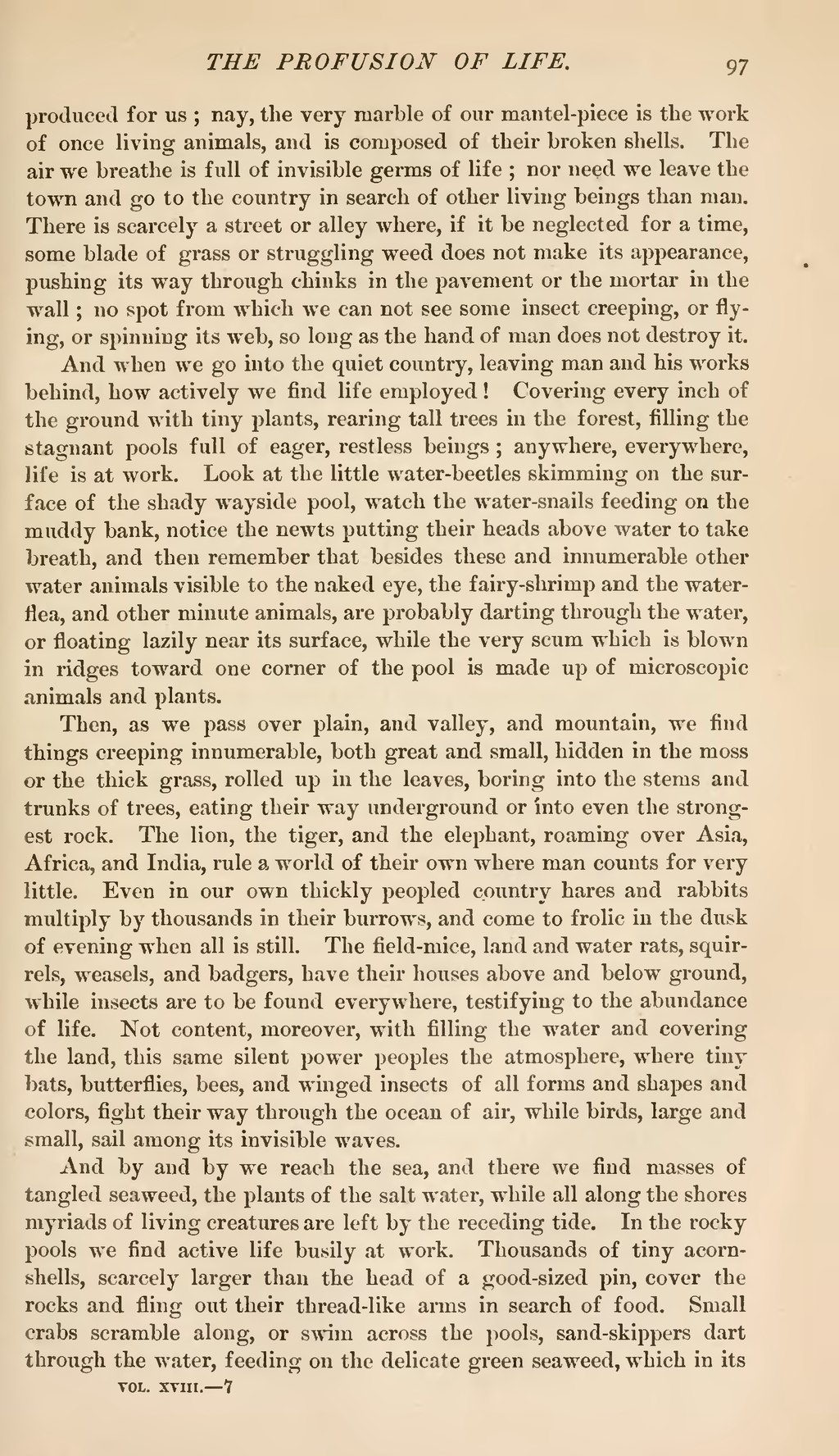produced for us; nay, the very marble of our mantel-piece is the work of once living animals, and is composed of their broken shells. The air we breathe is full of invisible germs of life; nor need we leave the town and go to the country in search of other living beings than man. There is scarcely a street or alley where, if it be neglected for a time, some blade of grass or struggling weed does not make its appearance, pushing its way through chinks in the pavement or the mortar in the wall; no spot from which we can not see some insect creeping, or flying, or spinning its web, so long as the hand of man does not destroy it.
And when we go into the quiet country, leaving man and his works behind, how actively we find life employed! Covering every inch of the ground with tiny plants, rearing tall trees in the forest, filling the stagnant pools full of eager, restless beings; anywhere, everywhere, life is at work. Look at the little water-beetles skimming on the surface of the shady wayside pool, watch the water-snails feeding on the muddy bank, notice the newts putting their heads above water to take breath, and then remember that besides these and innumerable other water animals visible to the naked eye, the fairy-shrimp and the water flea, and other minute animals, are probably darting through the water, or floating lazily near its surface, while the very scum which is blown in ridges toward one corner of the pool is made up of microscopic animals and plants.
Then, as we pass over plain, and valley, and mountain, we find things creeping innumerable, both great and small, hidden in the moss or the thick grass, rolled up in the leaves, boring into the stems and trunks of trees, eating their way underground or into even the strongest rock. The lion, the tiger, and the elephant, roaming over Asia, Africa, and India, rule a world of their own where man counts for very little. Even in our own thickly peopled country hares and rabbits multiply by thousands in their burrows, and come to frolic in the dusk of evening when all is still. The field-mice, land and water rats, squirrels, weasels, and badgers, have their houses above and below ground, while insects are to be found everywhere, testifying to the abundance of life. Not content, moreover, with filling the water and covering the land, this same silent power peoples the atmosphere, where tiny bats, butterflies, bees, and winged insects of all forms and shapes and colors, fight their way through the ocean of air, while birds, large and small, sail among its invisible waves.
And by and by we reach the sea, and there we find masses of tangled seaweed, the plants of the salt water, while all along the shores myriads of living creatures are left by the receding tide. In the rocky pools we find active life busily at work. Thousands of tiny acorn shells, scarcely larger than the head of a good-sized pin, cover the rocks and fling out their thread-like arms in search of food. Small crabs scramble along, or swim across the pools, sand-skippers dart through the water, feeding on the delicate green seaweed, which in its

